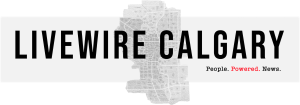Transportation, language and registration are major barriers to improving vaccine uptake in Calgary’s northeast, said an executive from the Centre for Newcomers.
In the COVID-19 update at Calgary’s Emergency Management committee meeting on Tuesday, councillors heard the discrepancy in vaccination rates between the east and west sides of Calgary. East Calgary, particularly the northeast, is below 50 per cent, while the west is much higher. Getting access to vaccines for all Calgarians remains paramount for the City’s plans to reopen this summer.
Coun. George Chahal, whose Ward 5 covers the city’s northeast, pointed out the 39.8 per cent vaccination rates in that quadrant. It’s the lowest in Calgary.

“From what I’ve been hearing people want to get vaccinated, but it’s the barriers of accessibility. What are we doing and how are we advocating to break down those barriers and get more folks vaccinated in their communities?” said Chahal.
Calgary Emergency Management Agency Chief Sue Henry said her team is working closely with the Calgary East Zone Newcomers Collaborative to identify the specific barriers facing individuals in these areas of the city.
“It’s one of the spaces that we’re spending a significant amount of time right now to try to to bring down some of those barriers so that all Calgarians can have access to a vaccine,” Henry said.
Thousands of Calgarians face systemic barriers
Anila Lee Yuen, CEO of the Center for Newcomers, said that many of these barriers are systemic.
Lee Yuen said transportation and access can be major challenges for people trying to get to vaccine centers. She adds that the process of registering for an appointment is another obstacle.
“You have to register by going online. That is a huge barrier for many people as well. The other piece is that if you are somebody that’s working shift work, you are potentially working two or three part-time jobs, said Lee Yuen.
“You don’t know what your schedule is two to three weeks out in advance, it’s extremely difficult for you even if you are able to access the internet and navigate to the site and make the booking.”
Henry pointed out that the City has been advocating for mobile and drop-in based vaccine clinics and sites. These are targeted towards communities with lower rates of vaccination, as well as the homeless population.
“We also continue to work with the local physician groups, to ensure that if they’re able to provide vaccinations to the community that we’re able to support the logistics in behind them, to increase the hours, increase the availability and dispel some of the myths around vaccine hesitancy,” Henry said.
Ethno- cultural diversity isn’t necessarily a factor
Chahal also brought up the factor of ethnic diversity in these areas, and whether this played a role in vaccine rates throughout Calgary.
Henry said that race based data about the general population is available, but that more specific information regarding vaccine rates in diverse communities is purely anecdotal. This information is mainly provided by the Calgary East Zone Newcomers Collaborative.
“We cannot get that granularity of data from Alberta Health or Alberta Health Services that would give us the specific demographic information about the rate,” Chief Henry said.
Lee Yuen said that she hasn’t seen many differences in vaccine uptake in ethno-cultural groups, but rather those that face systemic barriers.
She said that outreach clinics are incredibly important for getting more Calgarians in the East zone vaccinated, especially because many are essential or shift workers.
Breaking down language barriers is also key.
“Being able to provide the information in first language in multiple ways for trusted resources is also extremely important to be able to eliminate barriers around vaccine questions,” said Lee Yeun.
She added that assistance for Calgarians whose first language is not English is always available.
“If people need assistance, anything related to COVID, in their first language, they can call 1-833-217-6614. And if they would prefer English, please call 211,” Lee Yuen said.



